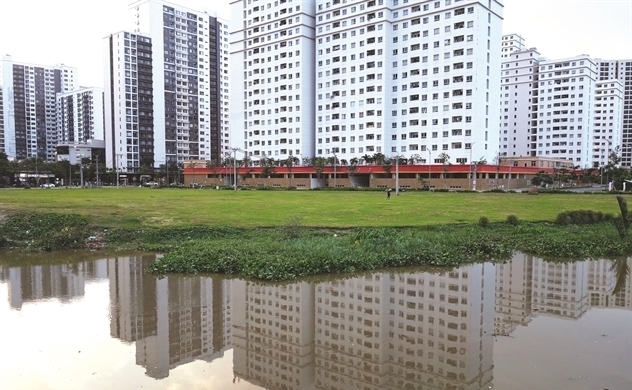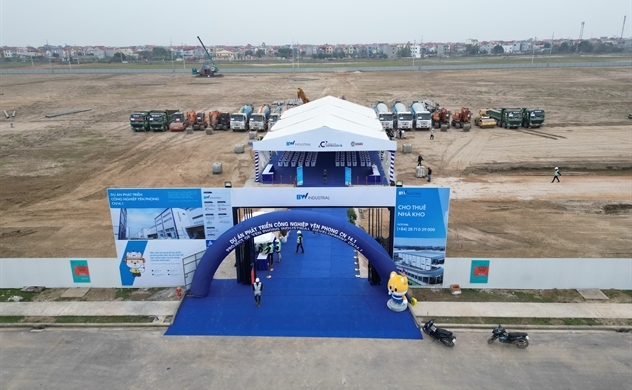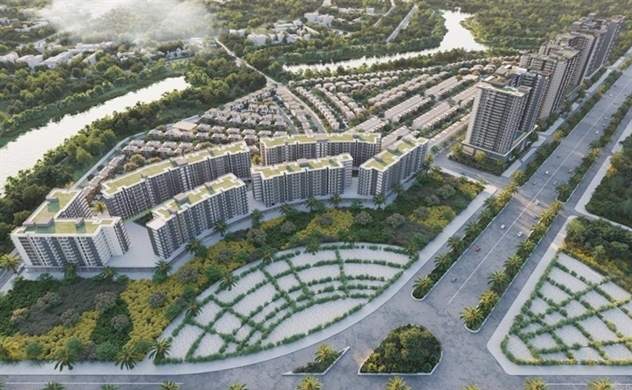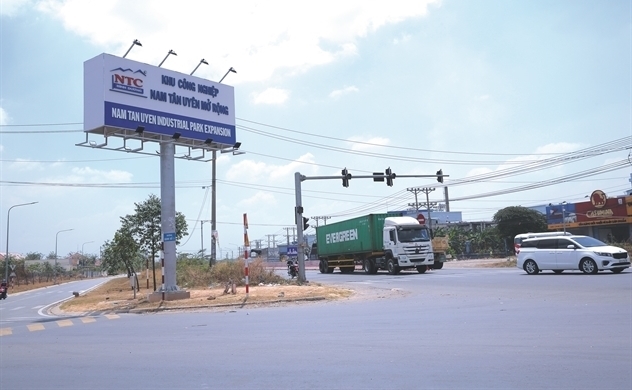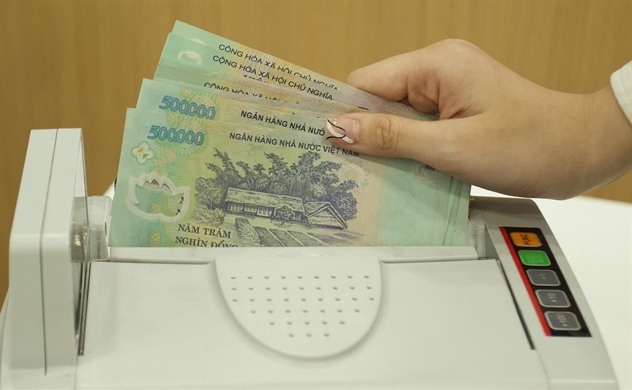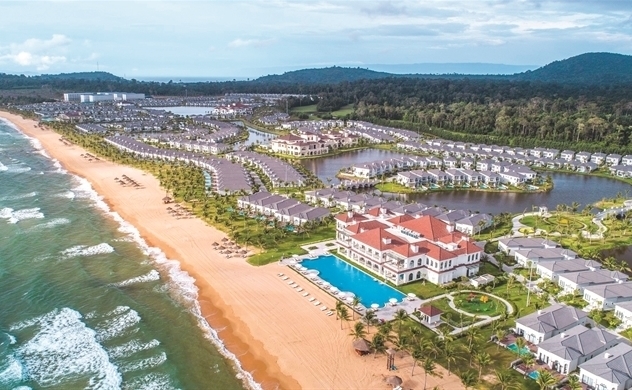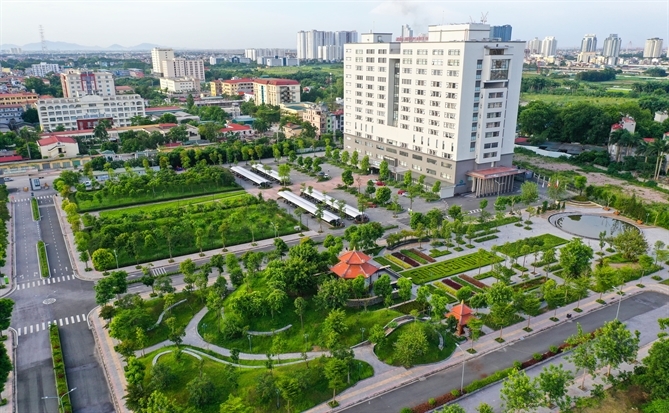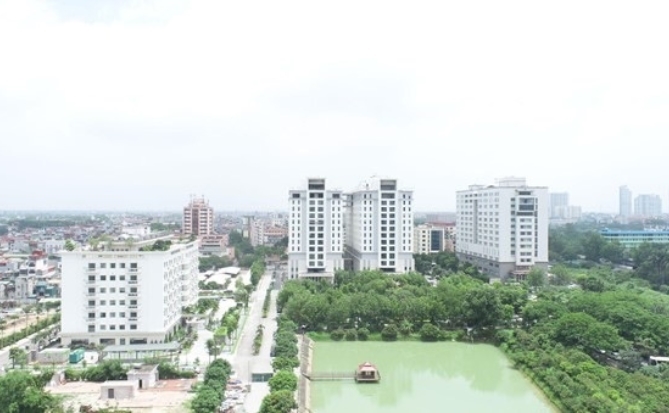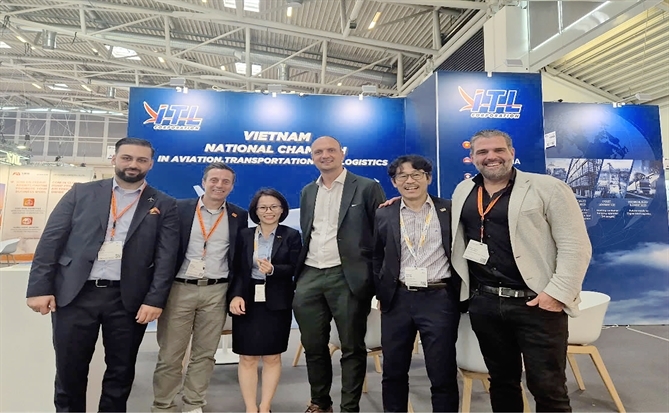Long-awaited urban commuter train system remains unfinished business
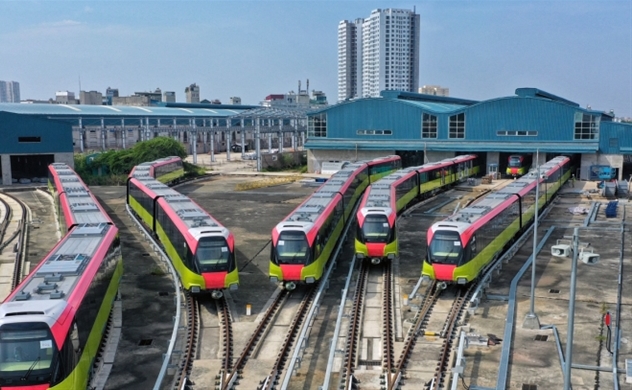
The trains for the Hanoi’s second metro route in Nhon depot. Photo by VnExpress/Giang Huy
The 12.5-kilometer Hanoi Metro Line 3 - the capital's second intracity line - will not open until 2027, more than a decade after it was supposed to begin in 2015.
Ho Chi Minh City's first commuter railway was supposed to arrive in late 2023, but the chances of it operating on time are dwindling. Financial challenges and the government' blatant lack of effort to resolve issues are to blame for the delays in finishing both lines.
The Hanoi municipal government stated in mid-September that the scheduled launch of Hanoi Metro Line 3 this year will be delayed by five years. "We did not foresee such a protracted delay," a construction source stated.
The aboveground segment of Hanoi Metro Line 3 is being built by Daelim Industrial in South Korea, while the subterranean leg is being built by a joint venture of Hyundai Engineering and Construction in South Korea and Ghella in Italy. Construction began in 2010, and the line was supposed to open in 2015, but the completion date has already been delayed five times.
Construction expenses will rise if the full line's launch is delayed until 2027. They were originally projected at $1.2 billion, but owing to the frequent delays, they may now exceed $1.5 billion.
The causes for the delays, according to a Hanoi municipal official, include land purchases, a lack of expertise among builders and consultants, discrepancies between international contracts and domestic legislation, and the COVID-19 epidemic.
However, it is rare for urban railway projects to take two decades from start to finish. According to industry insiders, authorities, particularly the municipal administration, have not taken the necessary efforts to address the issues.
Delays in infrastructure development in Vietnam are mostly due to the country's stringent rules and regulations. In Vietnam, "acts of causing damage to national property owing to a lack of accountability" are punishable by law.
When procedural failures result in accidents or other unforeseen outcomes, or expenses surpass early predictions, individuals in authority may face criminal charges.
The Communist Party of Vietnam is intensifying its anti-corruption campaign, and a series of probes have exposed bribery in infrastructure projects. However, because the reach of criminal legislation is ambiguous, some government employees avoid investigating alleged violations.
The projected fast transport network in Ho Chi Minh City, which is partially supported by the Japan International Cooperation Agency, has also been considerably delayed. The railway was supposed to open in 2018, but it is now unclear whether it will open even next year due to numerous changes to the design.
Last year, Vietnam's first urban commuter train opened in Hanoi. Other urban rail projects are underway in Hanoi and Ho Chi Minh City, but the launching of over 20 other routes is unlikely for a variety of reasons.
With a population of almost 100 million people, improving infrastructure is a major problem for Vietnam as the country's economy expands. However, the development of power plants and airports is often delayed for the same reasons that urban trains are.
Source: Nikkei Asia

 TIẾNG VIỆT
TIẾNG VIỆT 